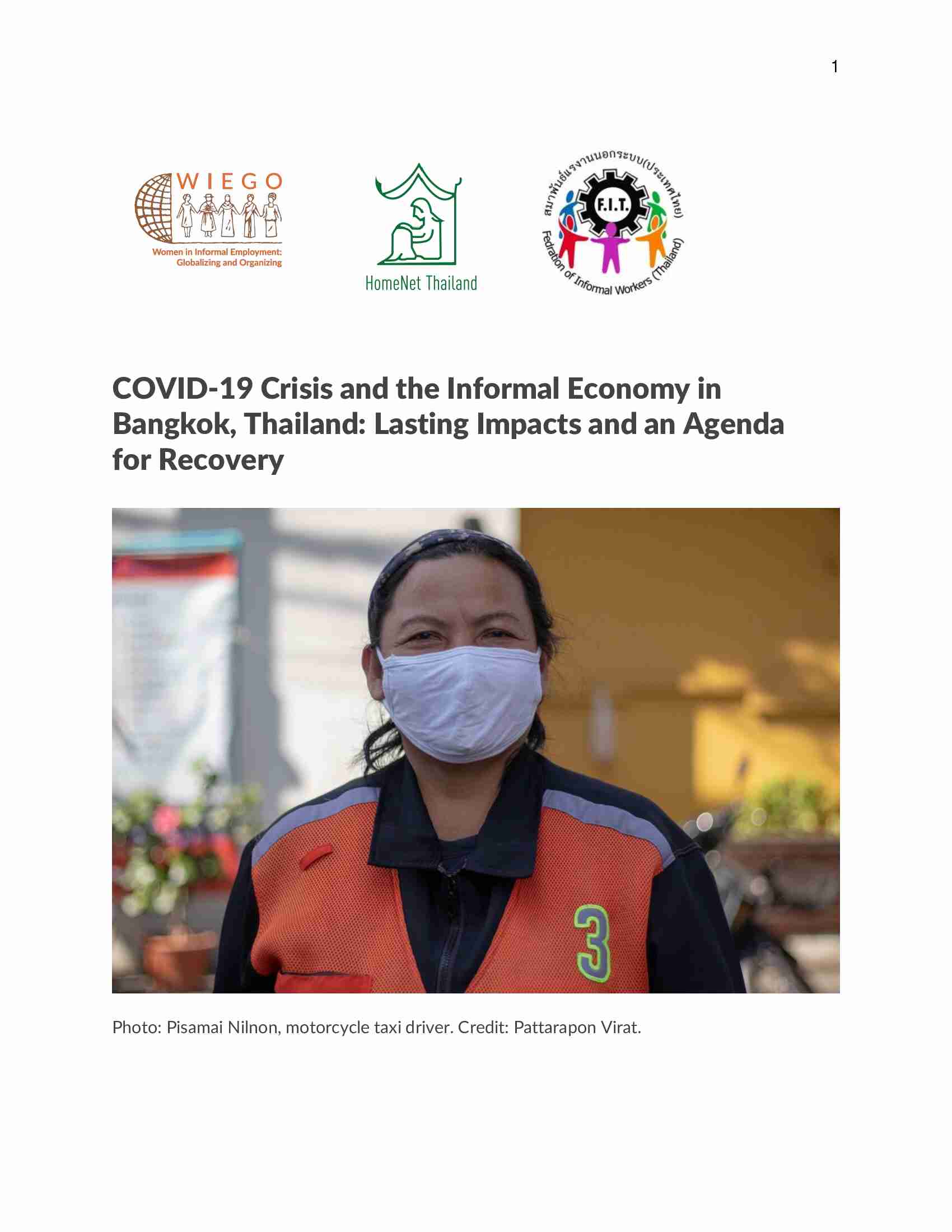COVID-19 Crisis and the Informal Economy in Bangkok, Thailand: Lasting Impacts and an Agenda for Recovery
This report presents the Bangkok findings from Round 2 of the WIEGO-led COVID-19 Crisis and the Informal Economy study that was conducted in mid-2021 to assess how specific groups of informal workers and their households were experiencing COVID-19 resurgences and ongoing economic strains, and to what extent (if any) they had recovered. The deteriorating conditions in Bangkok stand in contrast to most other cities in WIEGO’s study, where informal workers have seen a modest recovery compared to mid-2020.
Key findings include:
- All occupational groups surveyed, with the exception of domestic workers, were earning less than 40% of their pre-COVID-19 median earnings. Home-based workers and massage therapists – both women-dominated occupations – were the worst hit: both groups had median earnings of zero in mid-2021.
- 12% of respondents reported hunger among adults in their households in 2021.
- Respondents reported that the health and economic crisis had caused severe strains on their mental health.
- While the use of personal protective equipment (PPE) was very high in both 2020 and 2021, only 30% of respondents had been vaccinated at the time of survey.
- Findings confirm that Thailand’s cash transfer programmes were successful in reaching organized informal workers in 2020 and January 2021, though they excluded non-Thai migrant workers.
View list of all: City/Country Level Reports

